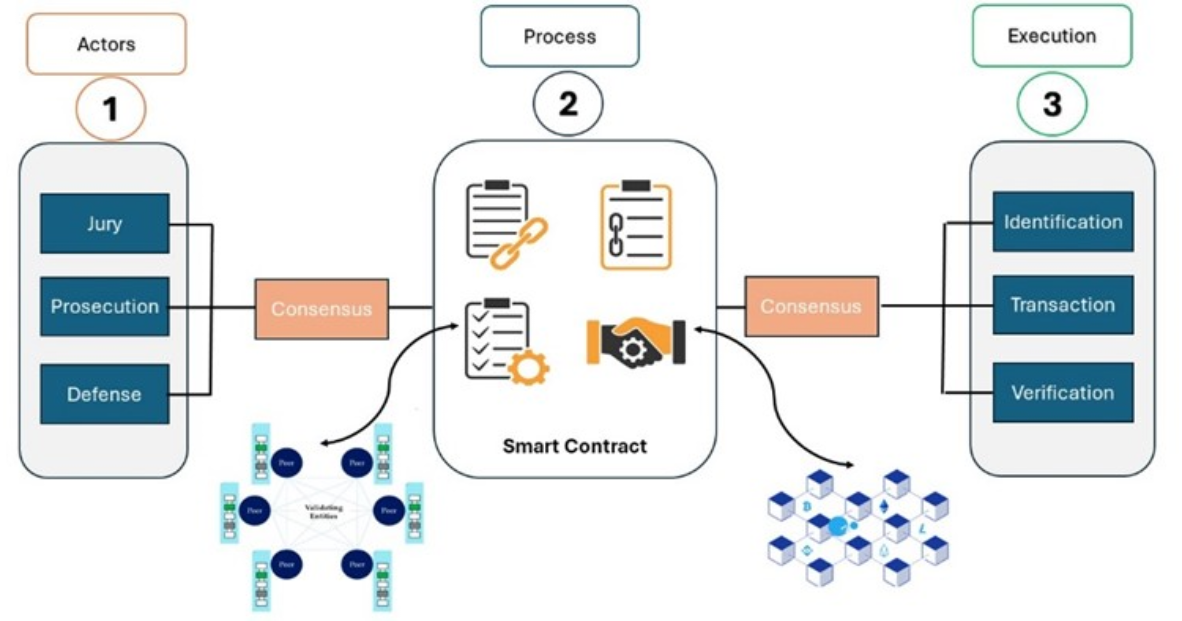Brett Rickaby's Insightful Corner
Exploring the world through news, tips, and intriguing stories.
Is Your Smart Contract Playing Fair or Cheating Behind the Curtains?
Uncover hidden risks in smart contracts! Find out if your code is playing fair or hiding tricks in the shadows. Don't get caught!
Understanding Smart Contracts: Are They Trustworthy?
Smart contracts have gained significant attention in the realm of blockchain technology as self-executing contracts with the terms directly written into code. This innovative approach promises to eliminate the need for intermediaries, thus reducing costs and increasing efficiency. However, many individuals question whether these contracts are truly trustworthy. To assess their reliability, one must consider several factors, including the coding process, the underlying blockchain’s security features, and the governance mechanisms in place. The smart contract code must be meticulously audited to prevent vulnerabilities that could lead to exploitation.
Moreover, the trustworthiness of smart contracts also depends on the transparency and immutability of the blockchain they operate on. Once deployed, the terms of a smart contract cannot be altered, which can both be a strength and a weakness. While this guarantees that parties cannot change the terms arbitrarily, it also means that any bugs or mistakes in the code are difficult to rectify. Therefore, engaging with platforms that emphasize rigorous testing and community audits can enhance the perception of security and trust in smart contracts. Ultimately, while smart contracts offer immense potential, thorough due diligence is crucial for those looking to engage with this technology.

Counter-Strike is a popular tactical first-person shooter game that has captivated millions of players worldwide. The game pits two teams, terrorists and counter-terrorists, against each other in various objective-based game modes. For those looking to enhance their gaming experience, you can check out the bc.game promo code to unlock some exciting features and bonuses.
Common Red Flags: Is Your Smart Contract Cheating You?
As the adoption of blockchain technology continues to grow, smart contracts have emerged as a crucial component in various decentralized applications. However, with new opportunities come potential risks. Recognizing common red flags is essential to ensure that your smart contract isn’t cheating you. One major red flag is the lack of transparency in the contract code. If the smart contract is not open-sourced or if the code is obfuscated, it can be a warning sign that the developers might have malicious intent or that critical functionalities are hidden from users.
Another red flag to watch for is the absence of a formal audit. Smart contracts are complex and can be vulnerable to exploitation if not properly vetted. Reputable developers typically subject their contracts to third-party audits to validate the security and integrity of the code. Users should always check for audit reports and reviews to avoid falling victim to poorly designed contracts. Additionally, any unexpected changes in the contract's terms or conditions after deployment should raise concerns, as they might indicate deceptive practices or attempts to exploit users.
How to Audit Your Smart Contract for Fairness
Auditing your smart contract for fairness is a critical step to ensure its integrity and functionality within the blockchain ecosystem. Start by identifying potential vulnerabilities in the code. This process should include a thorough review of the contract's logic, including paths that users can take under various conditions. Use tools like Solhint or Securify to detect coding errors or security pitfalls. Document each vulnerability found and categorize them based on their severity. Understanding the implications of these vulnerabilities is essential for drafting and implementing necessary amendments.
Once the vulnerabilities have been identified, create a systematic plan for addressing them. This can be done by following a structured audit checklist which should include the following steps:
- Review of access control mechanisms
- Verification of arithmetic operations for overflow and underflow issues
- Assessment of external calls that could lead to reentrancy attacks
- Testing the contract under various scenarios to simulate potential exploit attempts